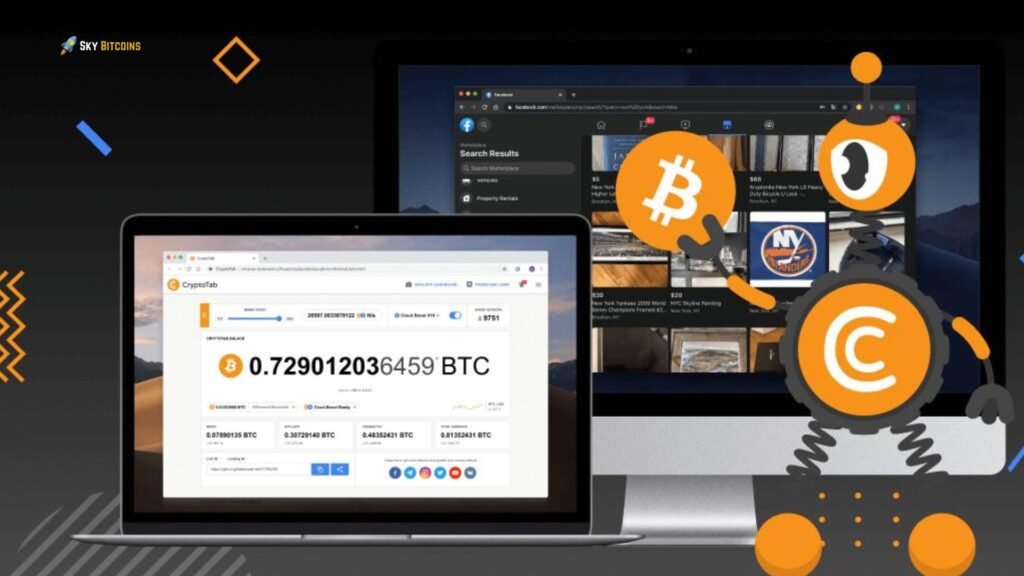As a means for anyone to earn Bitcoin by aiding the upkeep and protection of the decentralized network, Bitcoin mining has exploded in popularity among cryptocurrency enthusiasts. At first, regular household computers could mine Bitcoin. It used to be easy for individuals to mine Bitcoin profitably using simple technology like PCs, but that all changed as mining difficulty increased. Bitcoin mining on a PC is still feasible despite the increasing complexity; nevertheless, the strategy, tools, and profitability may vary from what one might anticipate. This article gives a comprehensive overview of the concept, how Bitcoin Mining on a PC works, and all the necessary information for anyone considering Bitcoin mining.
What is Bitcoin Mining?
Mining is the process of creating new bitcoins and validating blockchain transactions. Miners are the system’s backbone; they solve complex mathematical problems and get Bitcoin as a reward. This procedure guarantees that the network may continue functioning without a governing body, like a bank, by keeping it decentralized, secure, and operational. The “proof-of-work” algorithm is fundamental in Bitcoin mining. Miners race to add blocks of transactions to the Bitcoin network by solving cryptographic challenges. In addition to the transaction fees linked to the transactions in a block, miners receive a predetermined amount of bitcoins whenever they contribute to a block.
Can You Mine Bitcoin on a PC?
In Bitcoin’s early days, anyone with a computer could “mine” for bitcoins. The mathematical challenges, or mining difficulty, became far more straightforward, allowing even a basic home computer to mine efficiently. While initially easy, the mining difficulty rose as the number of participants in the network grew.
These days, application-specific integrated circuits (ASICs) are the tool of choice for Bitcoin mining due to their design to maximize profitability. Nevertheless, PC mining is still possible, although it’s not as efficient or profitable as before. While it’s true that mining Bitcoin on a personal computer can be a bit of a pain, there are ways to avoid this, such as mining other cryptocurrencies and then exchanging them for Bitcoin.
How to Mine Bitcoin on a PC
Choose Mining Software
Several mining software applications are accessible to personal computers. The following are examples of highly favoured choices:

-
- CGMiner: A popular command-line tool that supports a wide range of mining hardware.
- BFGMiner: Another versatile software that allows users to customize their mining setup extensively.
- NiceHash: This software allows users to mine various cryptocurrencies on their PC and automatically convert them into Bitcoin.
- MultiMiner: A beginner-friendly interface that makes mining more accessible.
Set Up a Bitcoin Wallet
Before mining, ensure you have a safe place to keep any Bitcoin you earn. You can keep your private Bitcoin keys in a Bitcoin wallet. Hardware wallets like Trezor and Ledger, software wallets like Electrum, and mobile wallets like Mycelium are among the most popular options.
Join a Mining Pool
Because Bitcoin mining is inherently competitive, mining on your computer will not produce excellent results. Then, joining a mining pool is the way to go. In a mining pool, participants pool their computing resources to process blocks faster, and the payout is based on the percentage of the total reward that each participant contributed. Popular mining pools include:
-
- Slush Pool
- F2Pool
- AntPool
Optimize Your Hardware
You can still enhance your setup using high-performance GPUs (Graphics Processing Units), even though PC mining is less efficient than ASIC mining. Modern GPUs perform much better when solving the cryptographic puzzles required for Bitcoin mining than traditional CPUs. A high-end GPU is necessary to maximize your potential profits when mining Bitcoin or other cryptocurrencies on a PC.
Start Mining
You can start mining after you’ve joined a mining pool, installed the necessary software, and prepared your wallet. While you work on other things on your computer, the software will quietly run complicated calculations. Remember that mining may be taxing on your hardware, so be sure to have enough cooling and keep an eye on your system to ensure it doesn’t get too hot.
Is Bitcoin Mining on a PC Profitable?
Bitcoin mining software is becoming increasingly complicated, making it less feasible to make as much money as a regular PC. Most users won’t see much return on investment when they mine Bitcoin on a personal computer due to the high electricity expenses, hardware wear and tear, and the comparatively poor output of non-ASIC gear. It may be more feasible to mine simpler cryptocurrencies like Litecoin, Ethereum Classic, or Monero on your computer and then convert the profits to Bitcoin.

Challenges of Bitcoin Mining on a PC
- High Energy Consumption: The amount of power you use when mining on a personal computer can add up quickly. If you can’t get your hands on inexpensive power, mining will likely not be profitable.
- Hardware Wear and Tear: Mining continuously may be quite taxing on your computer’s hardware, notably the graphics processing unit (GPU). This may shorten the life of your parts in the long run.
- Low Profitability: As indicated before, Mining Bitcoin on a personal computer yields far lower profits than mining using ASICs. In many cases, the minimal earnings from mining aren’t worth the expense of electricity and hardware.
- Heat and Noise: Since mining uses a lot of power, your computer’s cooling fans may have to work overtime to keep up with the noise and prevent overheating.
- Competition: Large mining companies using ASICs have a significant advantage in the Bitcoin network, making it difficult for individual PC miners to compete.
Conclusion
You may still use your home computer to mine Bitcoin and other cryptocurrencies, even though it’s not as profitable or practical as it once was. Learn about the tools, processes, and obstacles involved to decide whether mining is a good fit for you. Dedicated ASIC hardware or investigating other cryptocurrency mining options can be better if making a profit is your primary concern.


